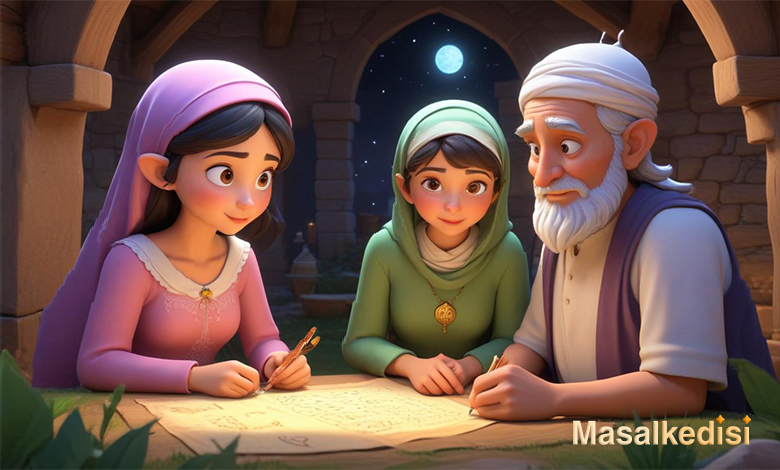Basic Teachings of Islam – Children and Islam

Once upon a time, in a small village in a beautiful valley, there lived a smart and curious girl named Elif. Elif loved nature and animals and was always trying to learn new things. Her father, Ismail Lord, one of the most knowledgeable people in the village, told Elif stories every day about the basic teachings of Islam.
One morning, Elif went to her father and asked, “Father, I want to learn more about the basic teachings of Islam. Can you tell me about the sun of Islam?” Ismail Efendi smiled and took Elif’s hand and said, “Of course, my daughter. I will tell you about the sun of Islam and the beauties of living in its light.”
First, İsmail Lord took Elif to the highest hill in the village. From here, the view of the valley and the village was magnificent. “Look Elif, this hill illuminates the entire valley and village, just as the basic teachings of Islam illuminate our lives,” he said. Elif understood what her father meant and listened attentively.
İsmail Efendi started to tell Elif about the five pillars of Islam:
**1. Shahada (Faith): “The first and most important teaching is to believe that there is no god but Allah and that Muhammad (PBUH) is His messenger. This is the foundation of our faith and should be in the deepest part of our hearts,” İsmail Efendi said. Elif nodded her head, internalizing her father’s words and said, “Faith is the light of our heart.”
**2. Prayer (Salat): “Salat is our turning towards Allah five times a day. When we pray, we remember Allah and show our devotion and love for Him,” said Ismail Efendi. “Prayer is the moment when our soul finds peace,” Elif said with a smile that showed she understood the importance of prayer.
**Fasting (Sawm): “Fasting is an act of worship during the month of Ramadan that allows us to discipline our nafs. By fasting, we understand what hunger and thirst mean and strengthen our patience and willpower,” said Ismail Efendi. When Elif thought that fasting teaches patience and willpower, she said, “Fasting is the best teacher of patience.”
**Zakat (alms): “Zakat is sharing some of our wealth with those in need. This is to ensure justice and solidarity in society by sharing the blessings given to us by Allah with others,” said İsmail Efendi. Elif, realizing the beauty of sharing, said, “Zakat builds a bridge between hearts.”
**5. Hajj (pilgrimage): “Hajj is a once-in-a-lifetime visit to the Ka’bah by Muslims who can afford it. Hajj is a great act of worship in which all Muslims come together and show their devotion to Allah,” said Ismail Efendi. When Elif thought about the unity and brotherhood of the pilgrimage, she said, “Hajj symbolizes the unity of Muslims.”
As Elif listened to her father explain these five pillars, she felt a great peace and happiness in her heart. Turning to her father, she said, “Father, the sun of Islam really illuminates our lives. Living by these teachings makes us better people.”
Ismail Efendi was very pleased with Elif’s words and hugged her, saying, “Yes, my daughter, the basic teachings of Islam keep us on the right path and give meaning to our lives. Remember, it is not enough just to know these teachings, we must also live them.”
Elif took these words as a guide for the rest of her life. She prayed every day, fasted during Ramadan, shared some of her wealth with those in need and dreamed of one day performing the pilgrimage. She always carried her faith in her heart and, as her father taught her, she was enlightened by the sun of Islam.
Elif’s beautiful life set an example for other children and people in the village. Everyone understood the basic teachings of Islam better and started to live their lives more beautifully with these teachings.
And so, Elif’s story continued to be told in the village as an example of how the sun of Islam illuminated their lives and touched people’s hearts.



